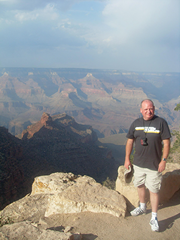Bryan Hooks
 Banbridge Chronicle editor Bryan Hooks reflects on his career in print and sums up the place of a local campaigning newspaper in its community.
Banbridge Chronicle editor Bryan Hooks reflects on his career in print and sums up the place of a local campaigning newspaper in its community.
How did you get started in journalism?
I got my break in journalism purely by accident. Whilst studying at college I used to submit soccer reports to my local newspaper, the Ulster Gazette in Armagh. I played for Armagh Boys’ Club at the time.
The editor then was William Greer and he must have been impressed with my work as he invited me for an interview. He needed a sports journalist at the time and I jumped at the chance; that was back in 1976.
Who were your main mentors and influences?
William Greer was one of the ‘old guard’, a disciplinarian in every sense and a die-hard journalist to the core.
When he sent you out on an assignment you dared not come back into the office without the story. But I learned a lot from him. He could be the most pleasant person in the world when dealing with a delicate issue but ruthless with anyone who stood in his way of getting the story.
After just over two years at the Gazette, and after revamping its entire sports section, as well as covering court, council and hard news, the Lurgan Mail approached me. They were about to lose their sports editor Jim Gracey to the Belfast Telegraph and they wanted me to take his place.
My worst memory in journalism came whilst on a sojourn to Belfast with the Castlereagh Courier. I was in Bulgaria covering a European Cup tie in 1981 between the home team, CSKA Sofia, and Glentoran when the Glens’ physio, Bobby McGregor (duded the “man with the magic hands”) collapsed and died in front of 60,000 baying, partisan fans after rushing on to the pitch to treat injured centre half Alan Harrison.
You can imagine the devastation for the team, officials and members of the press. The flight home was the worst I can remember.
If Willie Greer was a no-nonsense editor then another major influence on my career would have been the more subtle and canny Lindsay Kilpatrick, sadly also now deceased.
I was brought back to Lurgan as deputy editor to Lindsay and got on well with him.
He had a reputable background in sport and was now making a name for himself on the news-gathering front as an editor.
His way of getting at a story was different from Willie Greer’s, but no less effective. We had a good understanding and a good team at the Lurgan Mail in the mid-80s.
Eventually, Lindsay moved on to greener pastures and the Banbridge Chronicle came calling for me.
The timing could not have been better. I had just suffered the loss of my wife to cancer at a young age and was ready for a new challenge. I had enjoyed the adrenaline rush of taking over when the editor was on holiday at the Mail and I knew I could do the job.
The Banbridge Chronicle offered me that chance and after talking things over with my family and Lindsay, who was in at the launch of the Sunday Life, they agreed with me that it was too good an opportunity.
 What stands out about the Banbridge Chronicle?
What stands out about the Banbridge Chronicle?
Over the past 20 odd years, I am proud that the Banbridge Chronicle has been at the forefront of highlighting local issues. In some cases they may have seemed pretty mundane to those looking in from the outside, but for our readers, these were the bread and butter issues that mattered to them.
Over your career to date, what stories stand out as the most memorable?
The well-orchestrated but ultimately unsuccessful campaign to keep Banbridge Hospital open stands out. Never before have I witnessed scenes and protests that carried so much passion, anger and hurt.
The same could be said about the massive bombs that devastated the centre of Banbridge at the height of the Troubles. But the bigger stories came from how the town rose from the ashes, to rebuild bigger and better. The effort that was put in by the many, and in particular, independent business owners, to turn the fortunes of the town around again, was immense.
What have been the main constants and changes over the years?
Throughout my time at the Chronicle the main constants have been the theme of stories where we champion the cause of the common man and in most cases have proven that the pen is, indeed, mightier than the sword. As a community-based newspaper, we reflect what is happening locally, good and bad. As an editor, it is not my brief to stir up troubled waters but to report that the waters are troubled.
The biggest change has been in technology and how we produce the paper. Back in my Ulster Gazette days, the paper was produced on hot metal and in a constant mess of black ink. Today it is a clinical operation and done virtually at the push of a button and on premises where you could eat your dinner off the floor.
How do you relax?
I enjoy walking and travelling. There is nothing quite like a good long walk in Gosford Forest Park either to clear the head or come up with ideas.
I am the wrong side of 50 now and have suddenly realised that there are places I want to visit. Some of my recent highlights have been cruising the Nile, the Caribbean, visiting America’s ‘Gold Coast’, taking in the awesome sights of the Grand Canyon and the spectacular scenery of Zion and Yosemite National Parks.
Beijing and the Great Wall of China also stood out as did whale watching off the Hawaiian Islands last year.





